- Home
- personal finance
- 11 short books to read if you want to get rich
11 short books to read if you want to get rich
'Rich Habits: The Daily Success Habits of Wealthy Individuals,' by Thomas Corley

'If You Can: How Millennials Can Get Rich Slowly,' by William Bernstein
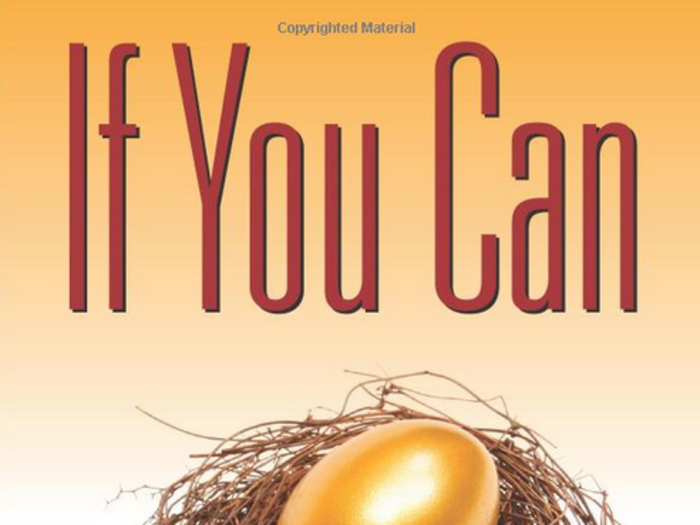
William Bernstein, cofounder of investment management firm Efficient Frontier Advisors, originally published "If You Can: How Millennials Can Get Rich Slowly" as an e-book for $0.99 on Amazon (and made it available for free on his website).
The quick 48-page read details how people early in their careers can retire comfortably with $1 million in the bank if they take a few critical steps.
You can get a preview of his thoughts in the article he published on Business Insider.
'The Psychology of Investing,' by John Nofsinger
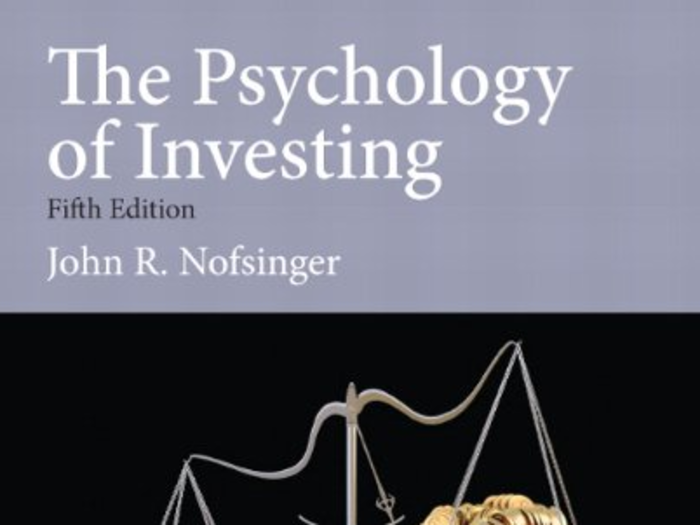
Investing is one of the most effective ways to start building a fortune, and the earlier you start, the better.
Nofsinger, a finance professor at Washington State University, explores the ways psychology affects investors in "The Psychology of Investing," while also providing a concise overview of how to make smart investing decisions when just starting out.
'The Investment Answer,' by Daniel C. Goldie and Gordon S. Murray
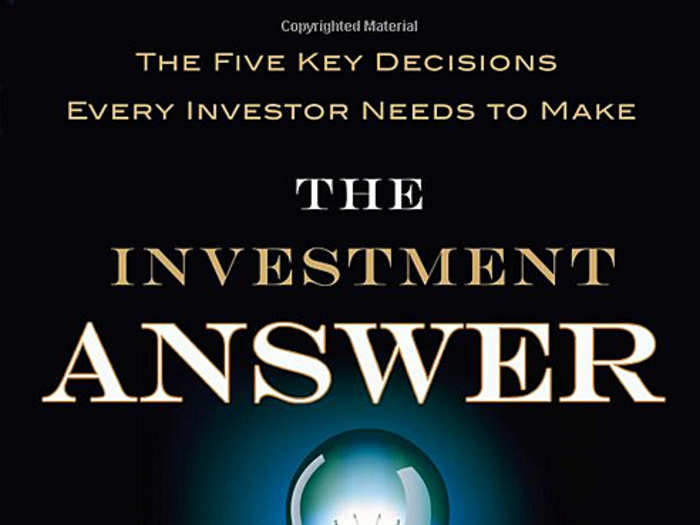
In "The Investment Answer," Goldie, a Wall Street veteran, and Murray, a financial adviser, provide a general guide to investing by focusing on five decisions every investor has to make.
These include whether to invest alone or with a professional; how to allocate among stocks, bonds, and cash; and when to sell or buy assets.
'The Richest Man in Babylon,' by George S. Clason
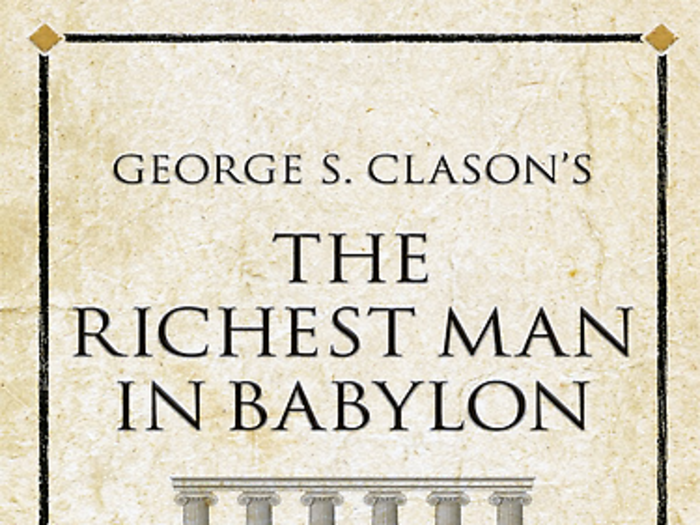
Clason's celebrated bestseller will teach you everything you need to know about personal finance through a compelling series of parables that take place in the historical city of Babylon.
"The Richest Man in Babylon" teaches you the principles of paying yourself first, living below your means, and investing in yourself, among other timeless financial lessons.
'You Got Screwed! Why Wall Street Tanked and How You Can Prosper,' by James J. Cramer
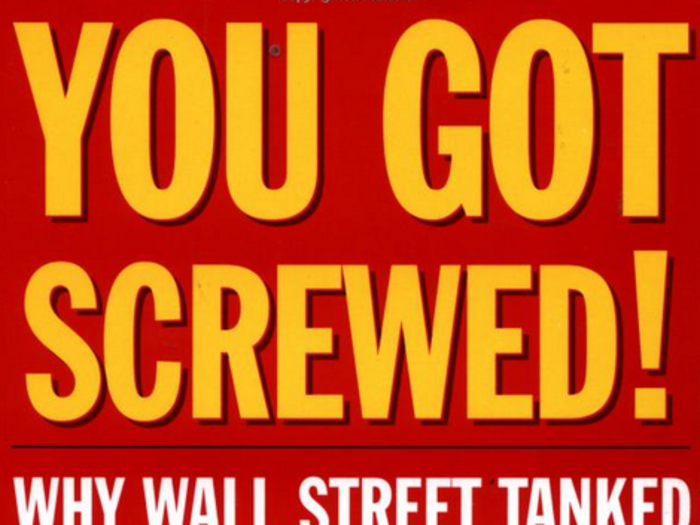
This little book provides big answers. Cramer, a former hedge fund manager and cofounder of TheStreet.com, explains what went wrong when Wall Street tanked, how companies got away with fraud, and why investors took the fall.
While he reveals the corruption on Wall Street and points out major flaws in the system, Cramer says ignoring the Street is not the answer to making smart investment choices. Instead, he offers a basic guide to make informed but prudent investing decisions.
'The Science of Getting Rich,' by Wallace D. Wattles
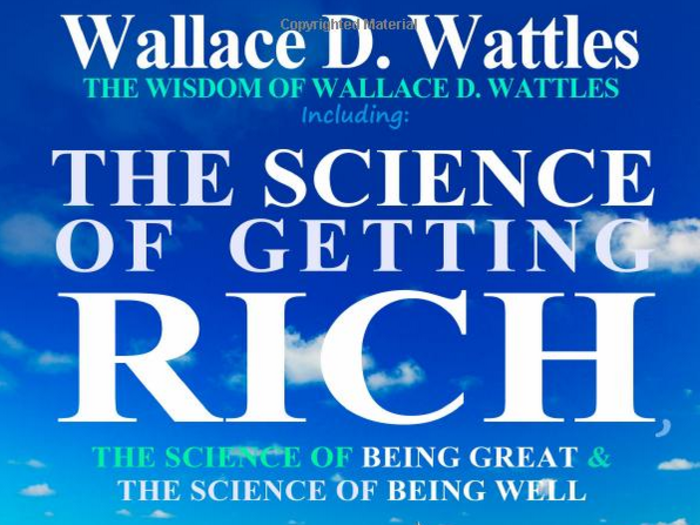
Despite being published in 1910, Wattles' slender book offers timeless personal-wealth building lessons.
In several concise chapters, Wattles outlines his belief that the secret to wealth attraction is creation — not competition — and your ability to accumulate money is dependent on how you think about it; for example, if you think money is the root of all evil, you will never be rich.
'The Top 10 Distinctions Between Millionaires and the Middle Class,' by Keith Cameron Smith
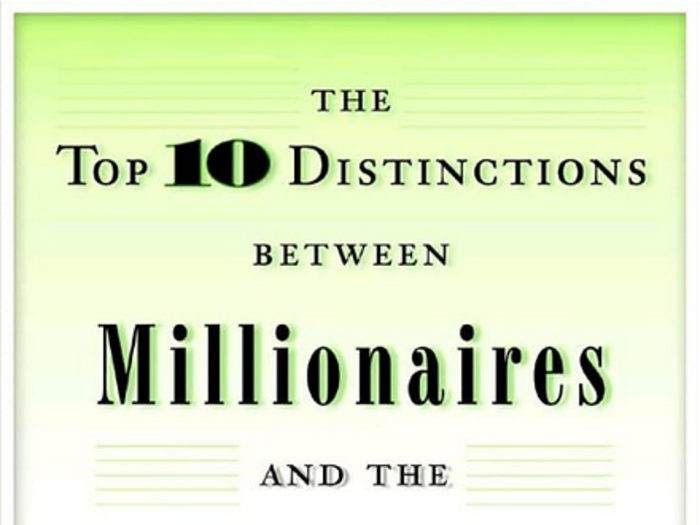
Smith teaches you to think like a millionaire in "The Top 10 Distinctions Between Millionaires and the Middle Class."
Smith says that all it takes to shoot up the economic ladder is adhering to 10 principles, which he outlines in this quick and easy-to-read personal finance book.
Some of the principles include thinking long-term rather than short-term, talking about ideas rather than things and people, and working for profits rather than wages.
'Debt is Slavery: and 9 Other Things I Wish My Dad Had Taught Me About Money,' by Michael Mihalik
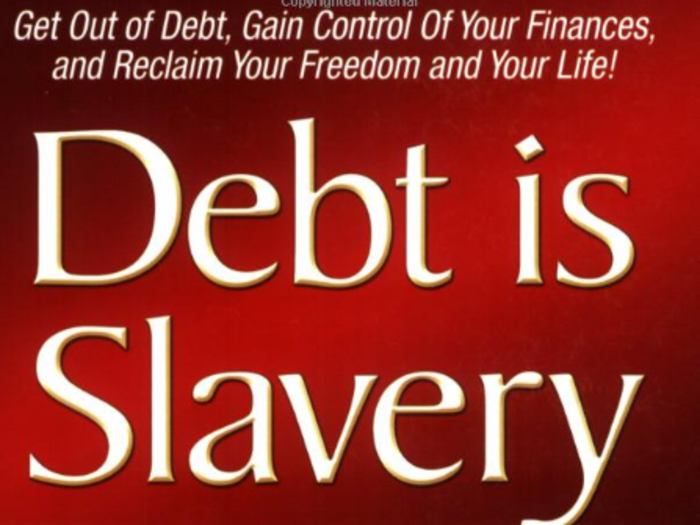
Mihalik wastes no time (or words) in "Debt is Slavery," which is packed with personal finance advice and focuses on changing the way people think about money.
The thin book chronicles the author's personal financial mistakes and the years he spent recovering from them.
Mihalik shares the 10 steps he used to get back on track, gain control of his finances, and pay off the $10,000 of credit card debt he had racked up by age 24.
'Money Anxiety: How financial uncertainty changes consumer behavior and the economy,' by Dan Geller
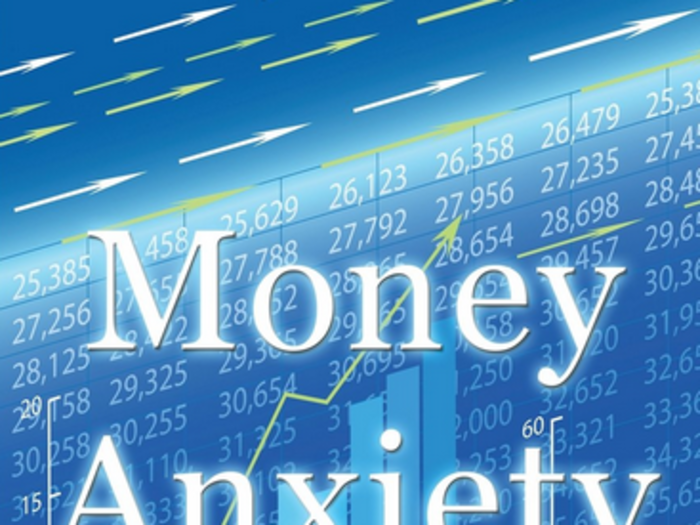
Behavioral economist Dan Geller explains how money anxiety — or financial uncertainty — can significantly impact how we decide to save and spend money.
High anxiety causes us to save more and spend less, while low money anxiety results in us saving less and spending more.
In "Money Anxiety," Geller introduces a new concept, "behavioralogy," which groups consumer financial behavior into six distinct behavioral patterns to focus on illuminating the psychology behind our decisions to save and spend.
'Bag Lady Syndrome: A Strong Woman's Guide to Financial Peace of Mind' by Lance Drucker
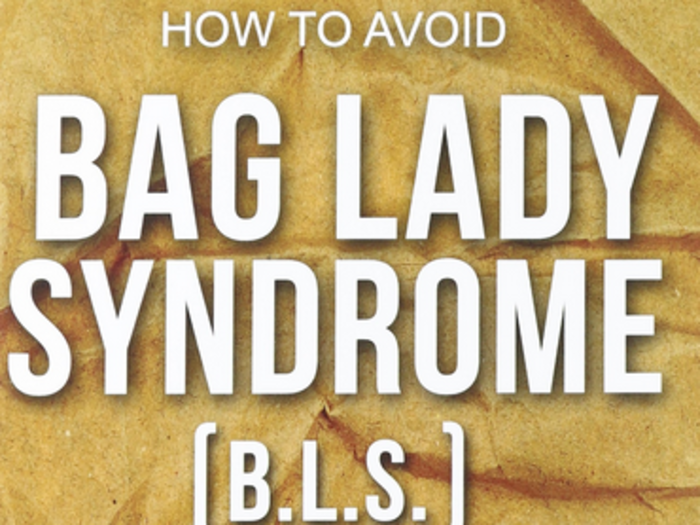
About 90% of women will be completely responsible for handling finances at one point in their lives because of the fact that statistically, they outlive men.
Drucker, a financial adviser, draws on 30 years of experience with thousands of clients to tackle women's financial concerns.
"Bag Lady Syndrome" offers practical advice that women — or anyone, really — can start implementing immediately in order to feel confident about their financial future.
Popular Right Now
Advertisement
